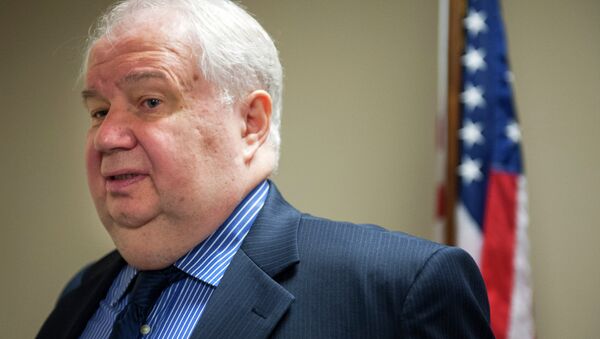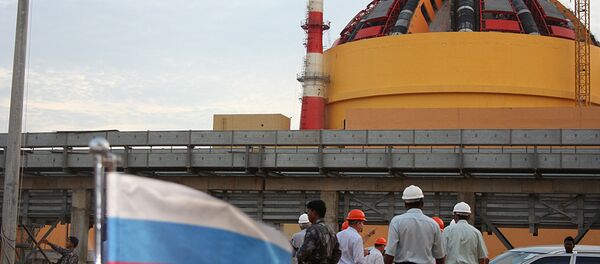WASHINGTON (Sputnik) — Russia’s leadership is open to a dialogue with the United States, but Washington has shut down most high-level channels for such discussions, Russian ambassador to the United States Sergey Kislyak said at a nuclear deterrence summit in Washington, DC on Wednesday.
“We do not see a serious sustaining dialogue as we have in the past,” Kislyak said of the collapse of US-Russian presidential working group sessions, ministerial meetings, and military-to-military contacts over the past year. “We are still open for a serious dialogue. And we are not going to beg for meetings.”
US-Russian talks continue on an “issue to issue basis,” Kislyak said, including discussions on nonproliferation and engagement in the P5+1 nuclear talks with Iran. But broader discussions of strategic stability no longer take place.
The lapse in high-level dialogue and military-to-military contact, combined with increased NATO deployments near Russia’s borders is a serious concern, the ambassador stated. Even during the worst period of the Cold War, the two countries sustained contact to increase predictability, Kislyak said.
The increased training and rotation of NATO personnel on the Russian borders, as well as increased air patrols, naval presence, and US deployments in eastern Europe, “does not help predictability and stability,” the ambassador explained.
Following the March 2014 referendum in Crimea, after which Crimea rejoined the Russian Federation, the United States began cutting off major ties with the Russian leadership. Together with its European allies, the United States moved in March to expel Russia from the G8 power bloc of industrialized nations, and imposed a series of economic sanctions.


